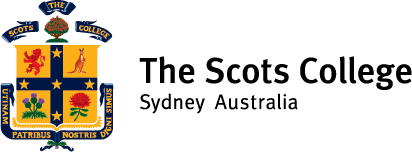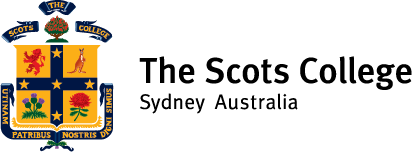In the current climate, the word ‘tradition’ is likely to evoke different responses from different people, be it in the sphere of religion, politics, art, dress, music or manners. Tradition, traditional, traditionalist – these are words which will have very positive associations for some, and outright hostility in others.
At The Scots College, we are proud to be acknowledged as an educational community with a strong and unique tradition.
We value our faith and tradition which inspire truth, honour, loyalty and commitment and are firmly defined by a daily Christian educational experience that draws from the past and points to the future. Our Christian, Scottish and Australian cultural heritage combine in the 21st century to provide a distinctive tradition, value set and vision for fine young men of integrity and principle.
More importantly, it provides a scholarly and philosophical foundation that has shaped and will continue to shape our thinking life well into the future.
Tradition versus progression
The traditionalist is convinced that the old ways are the best ways, and we should abide by them, rather than jumping on every passing bandwagon or being swept along by each new wave in the tide of changing fashions.
By contrast, the essence of ‘modern’ or ‘progressive’ ways of thinking and behaving is often characterised by a desire to begin with a clean slate – unhindered by the clutter of inherited assumptions and practices and set free to think and act responsibly in accordance with the demands of the present circumstance. This sort of polarity is evident in many facets of our society.
How tradition impacts our daily life
Our thinking about life and the world will inevitably be done in a way which draws upon and is shaped and determined by people, teaching and traditions experienced at school. They will provide us with many fixed points of reference, which we will need in order to function intellectually.
All human thought, even that which is most critical and radical, relies upon the support structure of an intellectual and cultural tradition – a vast body of knowledge and assumptions shared by the community within which we live, move and be.
Try as we might, there is no way of escaping from this situation. We can be critical towards one set of beliefs or practices only by assuming the validity of another. There can be no absolutely uncommitted or totally open-minded approach to life.
The importance of tradition in schools
Learning does not stop with the assimilation by indoctrination of a tradition; it merely begins there. Our intention, in handing on our own learning and acquired wisdom to our intellectual heirs, is not that they should remain passive and dependent. It is to enable them to engage with the world and its complex realities, becoming skilled handlers of the ideas and practices which we have bequeathed to them, and laying hold of the reasoning which lies behind them.
However, the answer is not to shun authority and tradition altogether from the outset, in preference for a supposedly free and critical alternative, but to recognise (and carefully regulate) the inevitable and proper place of authority and tradition as the matrix within which all truly responsible critical thinking takes place.
Paradoxically, it is our commitment to what the tradition offers us – our faith and trust in it, our willingness to be nurtured and to develop within it – which liberates us ultimately to step out beyond simple dependence into a mature engagement with the reality of which it speaks.
It is only in the light of such an engagement that either the strengths or the inadequacies of our tradition will become apparent to us as critical thinkers in our own right.
Perhaps then our mature response will indeed be to feel compelled to rebel against it; but we shall surely do so only after much careful consideration and with a sense of respect and gratitude for all that it has been and has given to us.
To want to rebel at the outset, to push aside the wisdom of the elders of our discipline and of those who preceded them, and to do so in the name of freedom and responsibility, is a sign of impetuous intellectual adolescence rather than maturity.
Out of the patchwork of various individual traditions and their authoritative voices is the quilted picture which each of us builds up of reality, and which informs and shapes our attempt to live meaningfully in the world. In reality, we are able to operate as intelligent and socially adept human beings only because we are prepared to take a considerable amount of the communal tradition on trust.
Reason, we might say, is parasitic upon tradition. It feeds upon and flourishes within an intellectual context, which provides it with a framework of fixed points of reference from which it draws its sense of direction and meaning. Tradition, in other words, is the parent of critical thinking, the womb within which it may develop and grow, rather than its antithesis.
True freedom – with respect to tradition – lies not in complete autonomy from it, but rather in a mature ability to discern the extent of our indebtedness to it, and yet a genuine willingness to hear other voices, other stories, and to be prepared in principle to revise (or even in some extreme cases to reject) our own tradition in the light of our engagement with reality.
Tradition, then, is not something which is essentially static or backward looking. It looks to the past and seeks to learn from its inheritance; but it looks equally to the present and the future, seeking in the acquired wisdom of former generations appropriate ways and means of dealing with new challenges and circumstances. It seeks to adapt itself, so that its voice may be heard speaking in the language which today’s generation can hear and understand, committed to the view that what it offers is of lasting value.
Written by Dr Ian PM Lambert, Principal of The Scots College.






